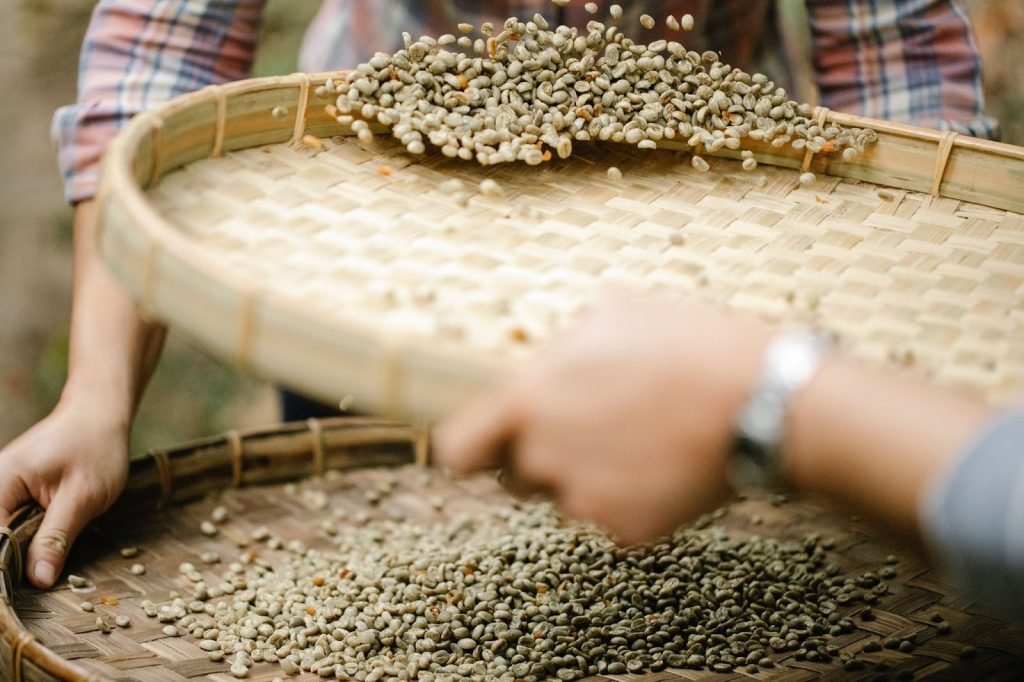Get to know the Q Grader Profession and its duties as a coffee quality evaluator in the coffee industry. This certification is one of the most rigorous tests in the sensory realm.
Q Grader professionals must be able to roast coffee, brew, and identify its sensory properties. This test is more concerned with practical skills than theoretical knowledge.
What is a Q Grader?
The Q Grader or Quality Grader profession is a certified professional in the coffee industry. They have the sensory abilities to be able to evaluate the quality of Green Coffee.
Typically, before obtaining Q Grader certification there is specialized education to increase equity through the coffee supply chain.
Q Grader professional certification is a global alignment that ensures coffee industry standards remain the same, by :
- Tasting,
- Evaluate, and
- Assessing quality numerically
How to Become a Q Grader?
To become a certified Q Grader, you must first complete a series of courses. The training is conducted over 6 days with subjects:
- Evaluate the appearance, taste, and aroma of roasted coffee.
- Distinguishing flavors through cupping exercises.
- Proper cupping training based on the standards of the Specialty Coffee Association America (SCAA).
However, of all the training, the main aspect of the Q Grader certification ensures that all participants use international standards. Thus, identifying aspects of flavor, acidity, and coffee characteristics.
The coffee standards in question are based on current SCA protocols and benchmarks. Including roasting levels for roasting coffee samples, the current SCAA cupping form that is evolving in 2023.
There are currently many Q Grader courses and exams that offer course packages and series. Registrants will learn from an authorized Q Grader instructor.
Workers who are already active in the coffee industry usually receive financial support for Q Grader certification.
Arabica coffee and Robusta coffee certification are usually separate because the two species are different. As such, they require slightly different evaluation and grading standards.
What are the benefits and roles of a Q Grader?
Becoming a certified Q Grader will support a career in the coffee industry. Not only for yourself, but also for coffee chains around the world.
A certified Q Grader can be relied upon to talk about coffee quality globally. This is because they have the ability to recognize coffee quality and the entire supply chain regarding coffee.
Tasting and judging coffee using the same standards will benefit everyone. Especially for producers, coffee roasters, and importers and exporters.
Evaluation of the quality of coffee products has been carried out reliably and fairly. Thus, greater consistency and predictability can be achieved. In particular, for all those involved in business and agricultural decisions at every step of coffee processing.
How did the Q Grader come about?
Initially, the Q Grader program was developed to serve coffee producers. In the past, coffee producers did not know how to evaluate their coffee production. Thus, there was confusion in determining quality coffee products.
Here, a Q Grader’s job is to evaluate and guarantee a reliable coffee quality claim.
Although, this certification has been around for a long time, over the last twenty years the modules have continued to evolve. There are new standards in the curriculum for updates, such as the SCAA standard cupping form with instructions.
What are the Qualifications of a Q Grader?
Taking the famous Q Grader professional certification is not easy. It requires serious concentration and study to pass the test. Many people have trouble passing on their first attempt.
According to Q Grader experts, the most difficult thing is the ability to taste coffee and analyze the most valuable points in coffee.
Meanwhile, the Q Grader certification is only valid for 3 years. Beyond that, they must recertify and pass the calibration course.
In serving a cup of coffee, the coffee berry must be carefully treated to produce the expected quality.
A farmer must also select the best grade variety before planting coffee. In addition, it also knows where to plant it so that growth and development can be optimized.
Farmers are in charge of supervising the processing of coffee cherries to avoid mold and pests from destroying the harvest.
In the supply chain, all parts are responsible for the quality of coffee, from mills and exporters, buyers and roasters, to retailers and baristas.
Meanwhile, the Q grader profession is tasked with ensuring and assessing the quality of coffee, so that it can be sold based on its quality.(*)









